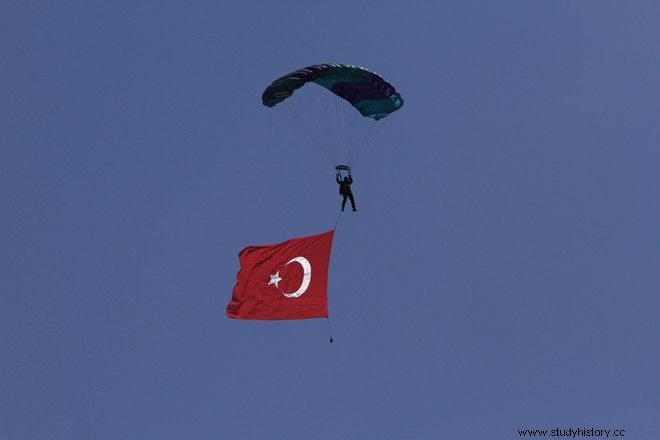In the early hours of July 20, the sirens sound all over Cyprus and awaken the dark memories of the Turkish invasion of 1974. Each time another year is added to the burden that the island carries on it, with the dark anniversary measuring 46 years today. Years full of unbearable pain, bad memories, images that will not be forgotten, you remembered the people who were lost, longing for return and hope.
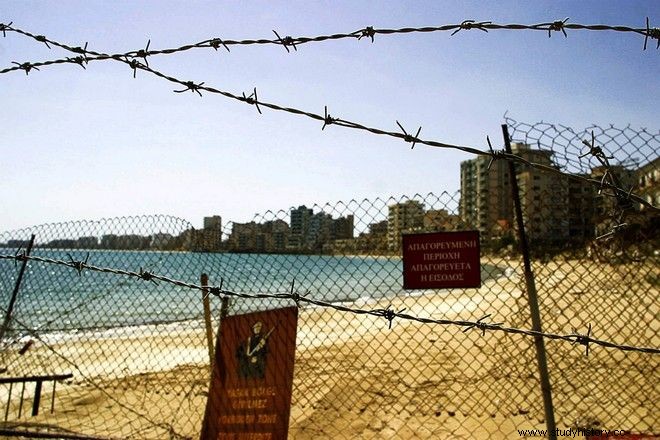
No matter how many years pass, people cannot forget. The pain of the refugee does not go away, even if they built their lives afterwards, even if they moved on. 1974 is not far away, the memories are still fresh. Families are still searching for their loved ones and hope that at some point they will hear news about their missing relatives. The Turkish flag still "adorns" Pentadakhtylos, it is visible from kilometers away on the road to Nicosia.
Three Greek Cypriots of different ages, who lived through the Turkish invasion in 1974, talk to News 24/7 about how they experienced the war, about the day they left their homes and about their feelings during all these 46 years.
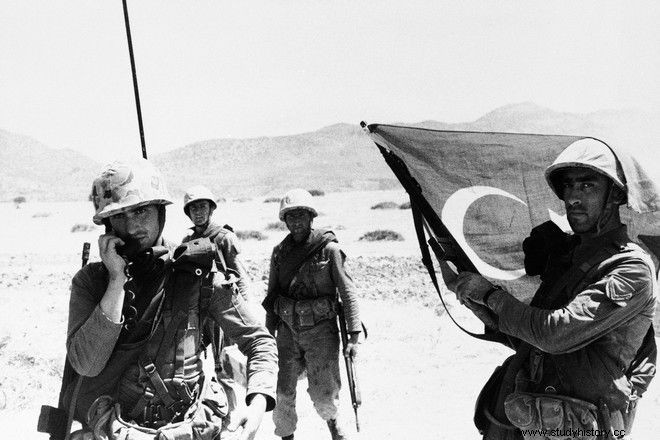
The Turkish invasion of Cyprus
The Turkish invasion began in the early hours of Saturday, July 20, 1974, a few days after the July 15 coup. Under the code name "Attila", Turkey invaded the island, presuming Article 4 of the Treaty of Guarantees. Heavy army forces landed shortly before dawn in Kyrenia and met resistance from Greek and Greek Cypriot military forces, however delayed, as orders did not allow the army to counterattack.
Specifically, when the radars of Cyprus detected that the Turkish warships were approaching Kyrenia, the Greek naval commander of Cyprus, Vice-Captain G. Papagiannis, immediately informed the head of the National Guard. He, in turn, urgently called the head of the Armed Forces of Greece, who did not accept the aggressive nature of the targets.
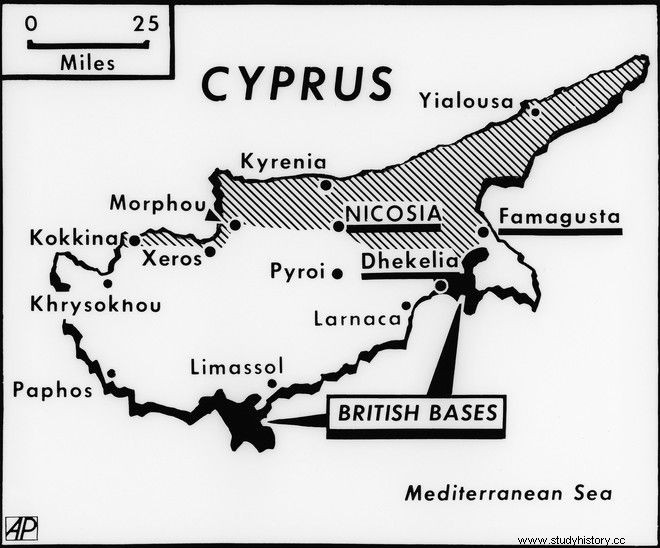
The leadership of the Greek armed forces and the dictator Ioannidis had given instructions to the supervisors at GEETHA that the Turks were holding gymnasiums for extortion reasons and, despite the calls of the commander of the National Guard, Giorgitsi, for orders to repel the invasion, the instructions called for "restraint". . Until it was too late.
The Turkish forces occupied Kyrenia and the area around the city within three days. On July 23, a truce was declared and both the Junta of Athens and the coup government of Cyprus collapsed. Two rounds of consultations followed in Geneva between the countries involved, in which Turkey demanded a federal solution, population exchange and 34% of the territory of Cyprus to be controlled by the Turkish Cypriots.
On August 14, the Geneva talks collapsed and Turkey launched a second operation, the so-called "second invasion" of Cyprus ("Attila II"), in which they advanced towards Famagusta and other areas, capturing 36.2% of the island and displacing 120 thousand Cypriots. Another 20 thousand remained trapped), while in total around 3 thousand Greek Cypriots were killed.
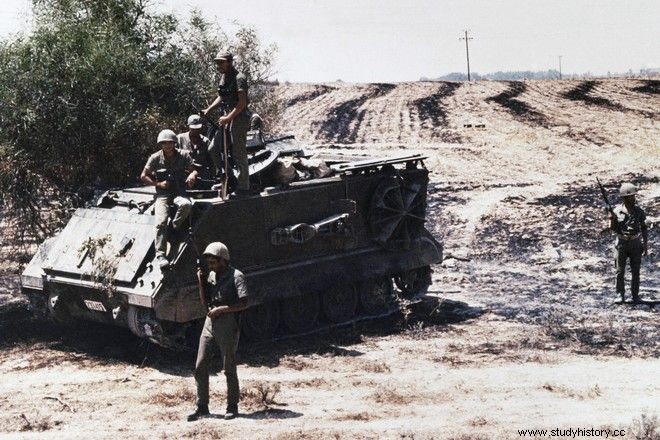
The black day of the refugee
The sound of war sounded in Cyprus. Thousands of residents were forced to leave their homes during the Turkish invasion. Airplanes were flying overhead and bombs were falling into the villages. Families fled to escape, to avoid being killed by the gunfire and the soldiers who invaded the houses, taking prisoners and "reaping" death in their wake.
Most of them left without taking anything with them, with the clothes they were wearing, without food and water. They left everything as it was and ran to escape. Others prepared a suitcase with a few things, with a piece of bread for their children and poured into the fields to save themselves. They all believed that it was temporary, that once this was all over they would go home and go back to their lives.
The war had just begun...
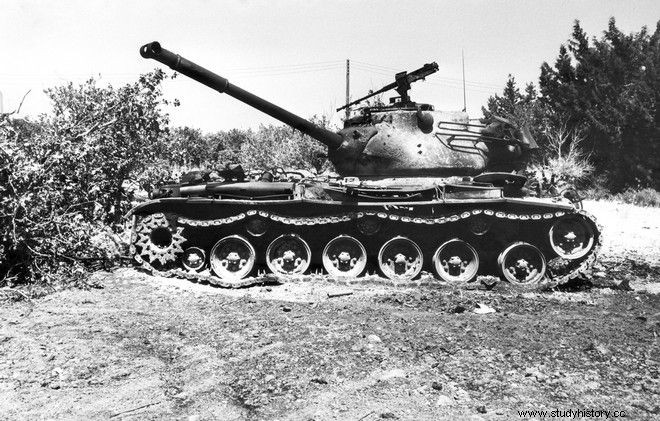
We didn't manage to get anything, we were in slippers
Ms. Iota Yorka , 62 years old today, comes from Marathovounos, a village in the area of Mesaoria in the province of Famagusta. It was the second invasion on August 14 that forced them to leave their home. As it states:
"On the day of the invasion, August 14, they started shelling our village. At noon we started to leave and went to the fields. We didn't have time to take anything, we were in our slippers. We didn't think we would leave our house and that we wouldn't we'll be back again, we couldn't imagine it. We thought we'd leave for the bombings and come back.
I was 16 years old and I was with my sister who was 15, my brother who was 12 and my cousins. On the way we found some villagers and they told us to go to a village, Strogylos, where there were Greek Cypriots and Turkish Cypriots. Entering the Round, we were caught by the Turkish Cypriots. They tied us up and took us to the village square, where there were other Cypriots and residents of Strongylos who did not manage to leave and had been caught. They separated women and men. They kept us there and their men were taken elsewhere, no one knew where they were taken or what would happen. Among them were two cousins of mine, 20 years old. That night we stayed at the house of the village headman, they had us all gathered, those who had been caught. The other morning they brought the men they had caught home, we saw them, they made us make them coffee, and we never saw them again. From that day on they were missing".
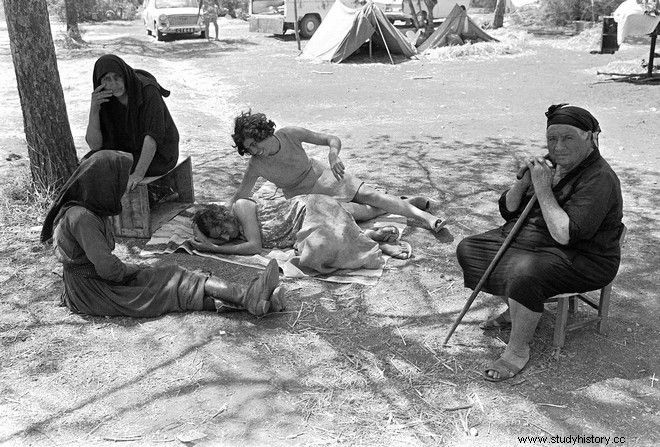
They took everything we had, we ran to the fields
Ms. Miss Savva , 78 years old today, remembers vividly the day they were forced to leave Varosi, and all the details of that dark day are etched in her memory. She had 4 young children with her and tried to protect her family. As he describes:
"We had heard that they took Kyreni and some other areas. I prepared some suitcases, the babies' clothes, milk and put them on the door so that we would be ready in case we had to leave. As it happened. We got in the car and left, we went in Kokkinohoria and we found a chamber in the yard of a house, they let us stay there. in a house. We stayed two or three nights, but we did not sleep because of our fear. One night we saw a big fire rising towards the sky, towards the of Famagusta. They said they came from Greece and were hitting Famagusta, but it was Turks who were hitting. They were bombing the hotels, people were killed. My husband wanted us to leave, to go back. We started to go back to our house in Varosi, but on the road towards Deryneia we realized that something was happening. We asked in a cafe nearby what happened and they told us that previously five large tanks with a Turkish flag passed by and entered the fields.
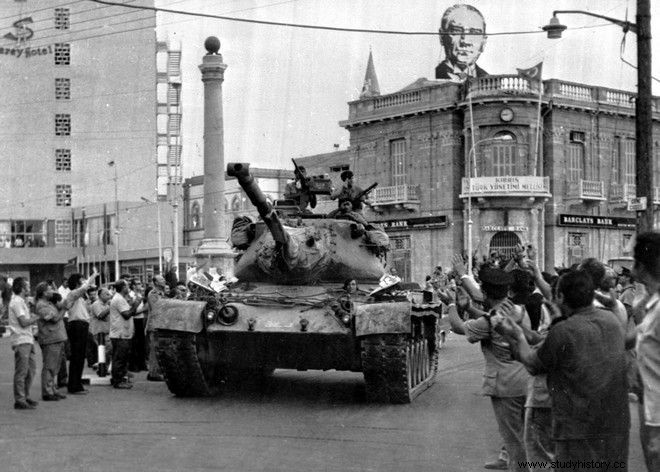
We saw a young soldier, petite, with his hat on. We thought he was ours. We thought that Cypriot soldiers were stationed there to "cut off" the way to the Turks, because we heard that the Turks had already started to enter Varosi. When we got closer, I realized that it was a Turk and he told us not to turn back, otherwise he would shoot. Before before us, other Cypriots had also arrived at that point. They were taking them out of their cars and taking them to fields, where they were being held. Weapons, weapons everywhere. He told us to put our hands on our heads and stand in threes in the street. That at one point I thought they were going to kill us. Even now I shudder to say it. It was a large area full of fields. They were picking us up and taking us behind the orchards. At one point they took us into the middle of a field, into a huge puddle, about 300 of us. Those who came, were thrown there.
Everything we had was taken from us. I kept my cross, my watch, some jewelry and some money. I hid them in my baby's underwear and we were saved. They took our cars, our clothes, everything we had with us. They brought some buses and told us to stop crying and that they would take us home. We didn't believe it. They took us to the fields and left us there, in the middle of nowhere. We started running. I put my little baby on my neck and we ran through the fields, not knowing where to go. Us and thousands of others. We were thirsty, hungry. We had neither water nor bread, we were in the clothes we left. The children were hungry, they were crying. We reached a village. They didn't give us a single piece of bread. We told them that the Turks caught us, that they took everything from us. No one was helping us, not even a glass of water."
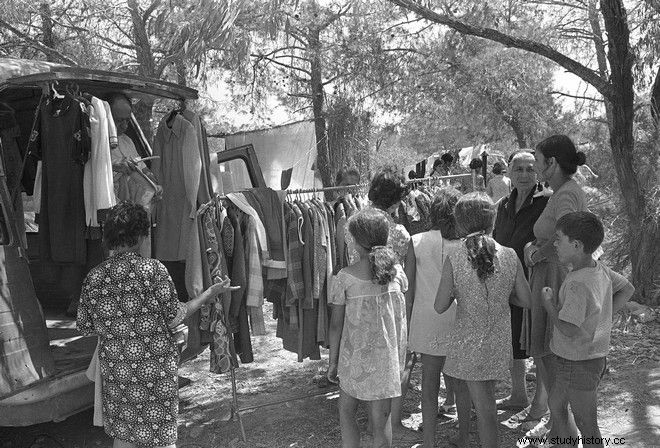
The sound of the planes was creepy
The 57-year-old today mr. Joseph Michael , at the time of the invasion he was a primary school student. He comes from the village of Agia Marina Skylouras, which is about 30 kilometers from Kyrenia, 15 from Nicosia and 10 from Morphou. He remembers the days of the first and second invasions, the wounds in his childhood soul still open to this day. As he tells us:
"We left during the second invasion, in August, but I also remember the days of July 20. The bombings had started from the area of Pentadaktylos and the surrounding villages. As children, we thought it was something like a game. We saw the planes dropping paratroopers, but we didn't understand, and in the evenings we watched the bullets light up from side to side as they hit each other. We began to understand the seriousness when they started passing through my village wounded, wounded and killed in cars. Soldiers were also passing, who were retreating. I remember that because it was hot summer, they were very thirsty. Because my village was a cattle breeding area and there were big water troughs for the animals, the soldiers would dive into them whole from thirst.
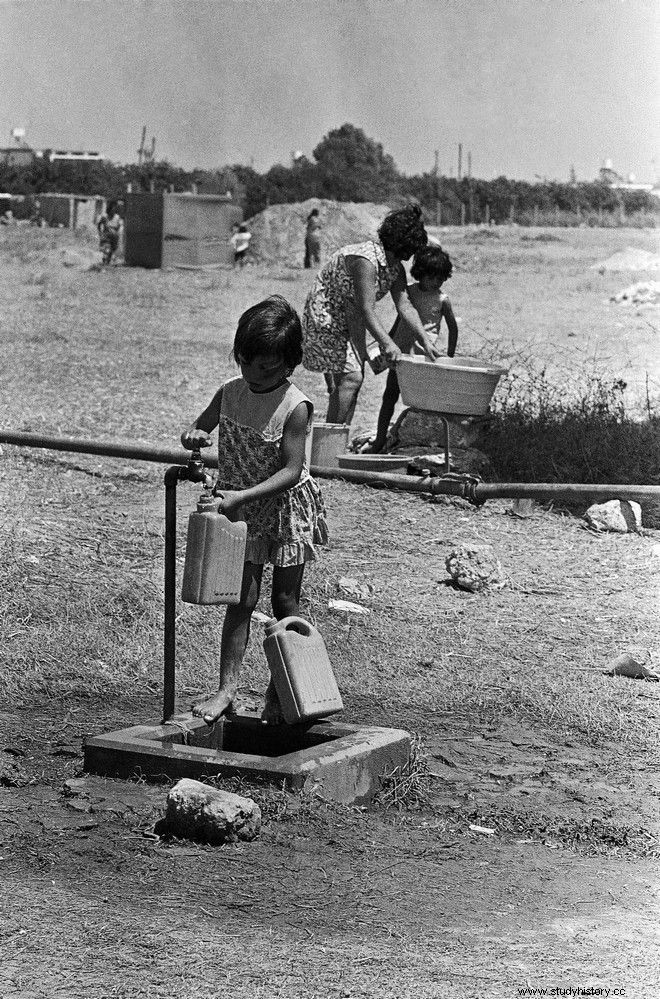
This was the experience of the first invasion, which we experienced somewhat from a distance. The great fear was in the second invasion. My village, because a large part of it retreated from Kyrenia, the artillery encamped. The artillery was now the first line of resistance and consisted of about 15 guns, which were placed in a row just outside the village, at the foot of some hills so as not to be seen. Around the village they had installed anti-aircraft forces, so that the planes could be hit. Well, in the early hours of the invasion, my village was marked to be hit because of the artillery. So the planes were tearing through the village and dropping bombs, because I couldn't get to the guns, as the anti-aircraft were there.
To this day, when I think of the sound of the planes I shudder and the sound of the bombs is still in our heads.
They were dropping bombs inside the village. I remember the first bomb. I heard the noise and went to go out of my parents room. The bomb went off next to me and the gases threw me against the door and fell down. They started shooting. Those of us who were small got together and entered a small church to protect ourselves. And fortunately we entered that little church, because in the big church that was beyond, because they knew that people were gathering, they hit it with fire. The noise from the planes was terrifying, as were the bombs falling around us. I also remember that they urged the girls to wear black long clothes, so that they would look like old women and not be raped if the Turks came".
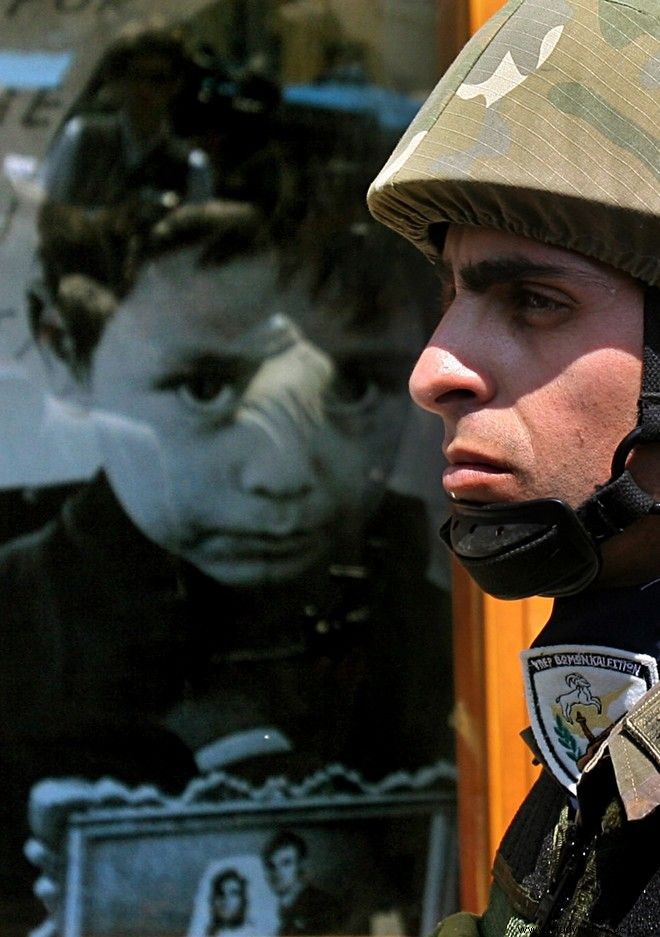
The savagery of war:Rapes, prisoners, murders
War is only violence. And some experienced it firsthand. Guns, tanks, rape, captivity, torture, murder. The fear of death. During the Turkish invasion war crimes were committed on both sides and thousands of people perished with great ferocity. Those who lived, carry this ferocity within them to this day and remember incidents that are difficult to erase from the mind.
Rape was used by the Turkish military to clear areas of civilians, forcing them to flee. Torture was a main tactic of the Turks during the war, while many Greek Cypriots were held captive by the army. A large part of them were brutally murdered, others were sent to Turkey, while the Turks released a part of the prisoners, sending them to Nicosia.
The testimonies of Greek Cypriots in News 24/7 they report in detail the ferocity of the Turks, while they describe images of ancient tragedy at the points where the buses arrived with those captives the Turks were freeing.
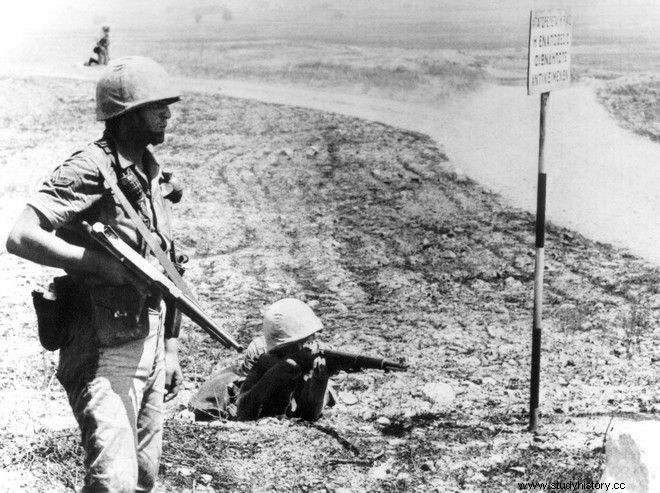
They were rabid, their blood was boiling
Ms. Miss Savva she remembers the fear of the unknown, the crimes, the ferocity, the blood, the cruelty of the Turks and describes what her eyes saw in those days.
"They had rage inside them, their blood was boiling. I remember they brought a Cypriot soldier in front of us and beat him a lot. Spears were hanging from him. He had a cross with a black chain. They told him to take it out, throw it in the dirt and step on him. He wouldn't accept and the more he said no, the more they beat him. They beat him furiously for about 20 minutes. My babies were scared, they were crying. Then they caught him and took him to a more distant place, behind some trees. We were certain that they would kill him. A Turkish soldier said to him:"You caught ours, where do you have them?" The Cypriot told him that he did not know. Every time he told them that he did not know, they beat him. Later, they brought him back to where we were us. He was severely beaten. He was like Christ, with spears all over his body. Blood was flowing.
They separated the young, the old and the women and children. I knew something was going to happen. We were crying, shouting, the babies were crying. Tanks were coming, red flags, thousands of tanks. They brought a huge truck and made us go inside, but they kept our husbands there. At one point my eldest daughter ran to her father, she was shouting for him to come back, she was crying. The Turks did not let her approach him. They were loading us one by one into the truck and at that moment a Turkish officer came. He asked the soldiers why we were crying and told him we didn't want to be taken. We were lucky because he ordered us off the truck. When they were in front the officers neither hit nor killed.
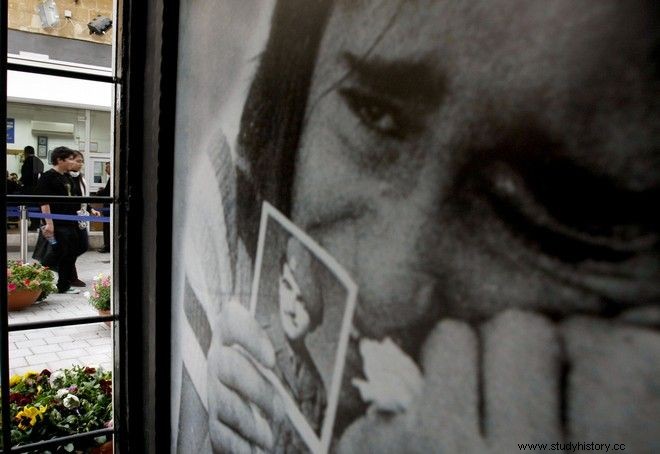
For days we went back to all the places in Cyprus where messages were sent, to find out what happened to our husbands. We kept listening to the radio and waiting to hear a name, to know if they were alive. Eventually my husband and the rest of the men were taken to Nicosia, in a huge garage. They were given a piece of bread. They were handcuffed, blindfolded and put into a large truck. They took them to the port of Kyrenia and from there they sent them to Turkey. My husband stayed two months in Turkey. At one point I managed to get a message from him, in the centers where we were going to check on them, in which he wrote:“I am fine. Take care of the babies." They couldn't write much. Later we learned that they began to send back the prisoners. We went every day to Nicosia, where full buses came and we tried to find ours. Some found them, others never came. Their wives screamed, fainted, cried when they couldn't see their own.
Later, we decided to go to Limassol, where I had relatives. We found a chamber and stayed there for a while. People lived in trucks, wherever they found, wherever they could. Those of us who were refugees went every day and were given some food and some clothes. They were all torn, old clothes. Others opened the house and entered. We didn't want to do something like that. At one point, a relative of mine told me that there is a Turk in Limassol who can give us a house to stay. We went to see it, but as soon as he opened the door and I saw the table, the bed made, the slippers there, I knew they had gone as we had. I shuddered. I remembered that we also left aron aron and left everything as it was. Του είπα ότι δεν το θέλουμε, δεν μπορούσα να το κάνω. Στα σπίτια αυτά είχαν μπει δικοί μας και τα έσπασαν. Έκαναν και οι Κύπριοι πολλά. Βρήκαμε αλλού και μείναμε κάποια χρόνια. Ευτυχώς γλιτώσαμε. Άλλοι έχασαν παιδιά, γονείς, τους σκότωσαν".
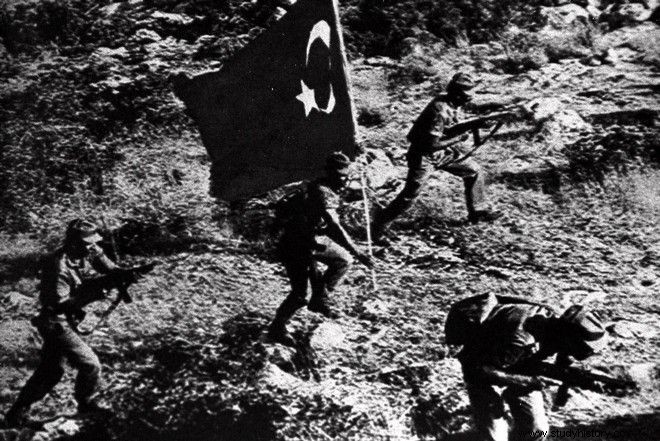
Μας κράτησαν αιχμάλωτους, προσπάθησαν να μας βιάσουν
Η κ. Γιώτα Γιώρκα , που κρατήθηκε αιχμάλωτη για περίπου 10 μέρες σε ένα σπίτι, θυμάται έντονα τον φόβο που είχαν μην τις βιάσουν. Τα βράδια δεν κοιμόντουσαν, ενώ οι Τούρκοι είχαν προσπαθήσει να τις κακοποιήσουν, μα χάρη σε έναν Τουρκοκύπριο αξιωματικό κατάφεραν να γλιτώσουν.
"Εμείς γλιτώσαμε σαν από θαύμα. Είχαμε άγιο. Μας κράτησαν αιχμάλωτους αρκετές μέρες σε ένα σπίτι. Ήταν ένας Τουρκοκύπριος αξιωματικός, που γνώριζε τον θείο μου που ήταν βοσκός. Μόλις κατάλαβε ποιες ήμασταν, δεν μας παρέδωσε στον στρατό και μας πρόσεχε. Τα βράδια κοιμόταν έξω από το δωμάτιο όπου μας είχαν και μας πρόσεχε για να μην μας βιάσουν. Είχαν προσπαθήσει να το κάνουν κι αυτό. Ένα βράδυ προσπάθησαν να μπουν κάτω από την πόρτα, αλλά μας έσωσε ο αξιωματικός. Δεν τολμούσαμε να βγούμε έξω από το δωμάτιο. Κάθε φορά που περνούσε ο τουρκικός στρατός, μας έπαιρνε και μας πήγαινε σε άλλο σπίτι, για να μην μας βρουν.
Εμείς παρότι αιχμάλωτοι, δεν ήμασταν δηλωμένοι στον Ερυθρό Σταυρό, οι γονείς μας δεν ήξεραν αν ζούμε, αν πεθάναμε, πού ήμασταν. Κάθε φορά που άφηναν αιχμαλώτους ελεύθερους, προσπαθούσε να μας πάει κι εμάς για να ελευθερωθούμε. Χάρη σε εκείνον μας ελευθέρωσαν μετά από 10 – 12 μέρες. Η μητέρα μου πήγαινε κάθε μέρα στο σημείο όπου έφταναν τα λεωφορεία με τους αιχμάλωτους που άφηναν. Μάταια, δεν μας έβλεπε, πήγαινε ξανά την επόμενη μέρα. Την τελευταία φορά μας βρήκε".
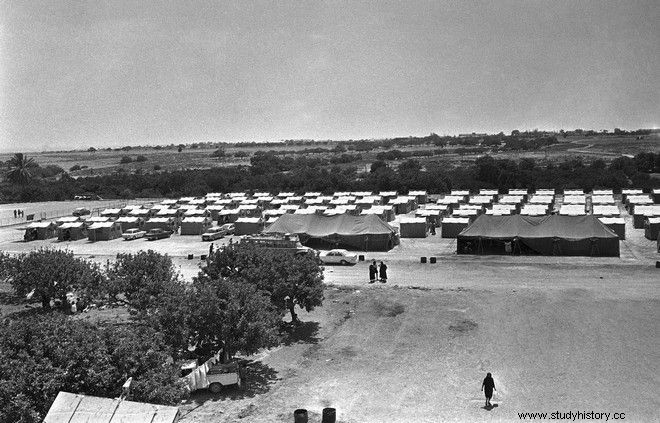
Βίασαν τις δύο μου γιαγιάδες
Ο κ. Ιωσήφ Μιχαήλ αναφέρει πως όταν οι Τούρκοι έμπαιναν στα σπίτια, δύσκολα μπορούσες να γλιτώσεις, ενώ εξομολογείται πως βίασαν και δολοφόνησαν συγγενείς του, οι οποίοι έμειναν εγκλωβισμένοι. Επίσης, περιγράφει την τραυματική εμπειρία του πολέμου σε ένα παιδί και το πόσο δύσκολο είναι να επανέλθει κανείς μετά από την αγριότητά του.
"Οι γιαγιάδες μου και ο θείος μου δεν πρόλαβαν να φύγουν και έμειναν στο σπίτι εγκλωβισμένοι. Οι δυο τους ήταν μεγάλες σε ηλικία, σχεδόν κατάκοιτες. Βιάστηκαν από τους Τούρκους. Τον θείο μου τον σκότωσαν. Στο χωριό μου πιο παλιά ζούσαν περίπου 10 οικογένειες Τουρκοκύπριων, οι οποίες έφυγαν στις αναταραχές του 1964. Ίσως τότε μερικοί Ελληνοκύπριοι να ενόχλησαν κάποιους Τουρκοκύπριους, γιατί οι Τούρκοι τα είχαν καταγεγραμμένα. Όταν μπήκαν στο χωριό μας, είχαν λίστες με ονόματα και ρωτούσαν τη γιαγιά μου αν ξέρει πού βρίσκονταν αυτά τα άτομα. Όπου υπήρχαν πληροφορίες ότι Ελληνοκύπριοι ενόχλησαν Τουρκοκύπριους τότε, έκαναν αντίποινα. Την πλήρωσαν οι γιαγιάδες μου κι ο θείος μου.
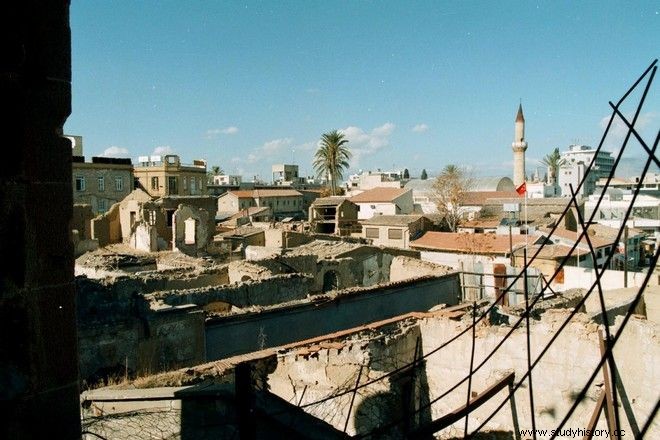
Στο χωριό μου είχαμε πριν φύγουμε, είχαμε ένα καφενείο. Η μητέρα μου έκανε φαγητά και τάιζε τους στρατιώτες που είχαν στρατοπεδεύσει. Εκεί γνωρίσαμε έναν στρατιώτη από το ορεινό χωριό Κυπερούντα και μας είπε να πάμε εκεί. Είπε στον πατέρα μου, αν πηγαίναμε, να ψάχναμε τους γονείς του και να τους λέγαμε ότι ο γιος τους είναι ζωντανός, γιατί δεν είχαμε τηλέφωνα τότε. Όντως, όταν φύγαμε από το χωριό πήγαμε στην Κυπερούντα και τους βρήκαμε. Όταν τους μεταφέραμε ότι είναι ζωντανός, έκαναν τόσο μεγάλη χαρά που μας έβαλαν μέσα στο σπίτι τους και ζήσαμε εκεί τρεις μήνες. Έπειτα φύγαμε και ήρθαμε στη Λεμεσό.
Κατά τη διάρκεια των πρώτων ημερών, έκλειναν οι πόρτες και νομίζαμε ότι ήταν βόμβες. Θυμάμαι ότι με έστελνε η μητέρα μου στο μπακάλικο να πάρω ψωμί και μέχρι να φτάσω ξεχνούσα τι ήταν να πάρω. Σε τέτοιο σημείο μπορεί ένας μικρός να επηρεαστεί από τον πόλεμο. Μου πήρε πάρα πολύ χρόνο για να επανέλθω. Είδαμε σκοτωμένους, τραυματισμένους στρατιώτες, αεροπλάνα, τανκς, βόμβες".

Αγνοούμενοι, η μεγάλη πληγή της Κύπρου
Οι αγνοούμενοι αποτέλεσαν και συνεχίζουν να αποτελούν μια τεράστια πληγή για την Κύπρο. Είναι ένα κεφάλαιο που ακόμα δεν έχει κλείσει. Χιλιάδες άνθρωποι χάθηκαν στον πόλεμο και οικογένειές τους δεν τους βρήκαν ποτέ. Είναι μεγάλο βάσανο και σου τρώει την ψυχή το να μην γνωρίζεις για χρόνια τι απέγιναν οι δικοί σου, να μην μπορείς να τους κλάψεις, να μην μπορείς να τους θάψεις. Πολλοί έφυγαν από τη ζωή, χωρίς να μάθουν ποτέ τι συνέβη στα παιδιά τους, τα αδέλφια ή τους γονείς τους.
Τραγικές φιγούρες τόσο τα πρώτα χρόνια μετά την εισβολή, όσο και τα επόμενα, υπήρξαν οι συγγενείς των αγνοουμένων που έψαχναν τους δικούς τους κρατώντας φωτογραφίες τους. Οι εικόνες αυτές αποτελούν από τις πιο χαρακτηριστικές της τουρκικής εισβολής. Παιδιά που αναζητούσαν τους γονείς τους, γονείς που αναζητούσαν τα παιδιά τους. Όσοι ζήσαμε στην Κύπρο, θυμόμαστε ακόμη τα πρόσωπά τους.
Τα τελευταία χρόνια αρκετοί από τους συγγενείς των αγνοουμένων κατάφεραν να βρουν γαλήνη, αν και ακόμα κι αυτό μοιάζει οξύμωρο. Μετά από έρευνες, κατάφεραν να εντοπιστούν και να ταυτοποιηθούν οστά που βρέθηκαν σε ομαδικούς τάφους στην κατεχόμενη Κύπρο. Ωστόσο, ό,τι απέμεινε από εκείνους, δεν ήταν παρά μικρά κομματάκια οστών, τα οποία οι οικογένειές τους έθαψαν.
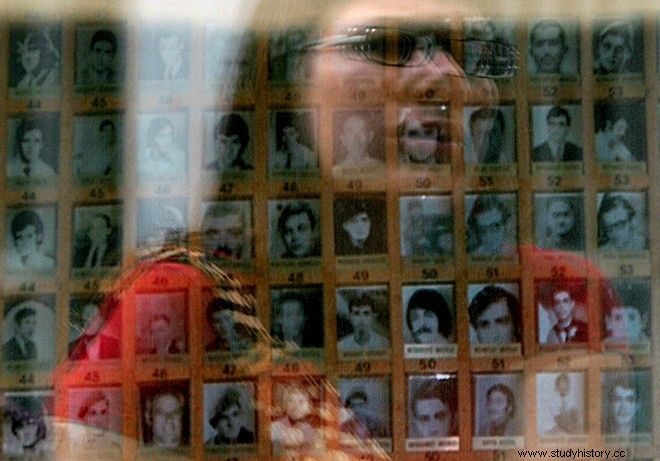
Πέθαναν με το μαρτύριο του αγνοούμενου
Ο κ. Ιωσήφ Μιχαήλ υπήρξε ένας από εκείνους που μεγάλωσαν έχοντας αγνοούμενο συγγενή στην οικογένεια. Για πολλά χρόνια δεν ήξερε αν ο θείος του ζει ή πέθανε, αλλά και πού βρίσκεται αν είναι νεκρός. Τελικά, όπως έμαθε αργότερα, τον αποκεφάλισαν οι Τούρκοι όταν εγκλωβίστηκε στο σπίτι τους στο χωριό.
"Ο θείος μου ήταν αγνοούμενος και τον βρήκαν αργότερα αποκεφαλισμένο σε έναν τάφο, εκεί μαρτύρησε. Όταν οι Τούρκοι πήγαν να βιάσουν την γιαγιά μου, στο σπίτι όπου εγκλωβίστηκαν, ο θείος μου προσπάθησε να τους σταματήσει. Τον πυροβόλησαν στη λεκάνη και γονάτισε. Τον έπιασαν, τον έσυραν έξω και τον λόγχισαν στην ωμοπλάτη. Τον βρήκαν μετά από πολλά χρόνια χωρίς κεφάλι. Μέχρι τότε η γιαγιά μου δεν ήξερε πού ήταν και τι του είχαν κάνει, είχε ακούσει πυροβολισμούς εκείνη τη μέρα που τον χτύπησαν, αλλά ήταν στους αγνοούμενους μέχρι που το μάθαμε πρόσφατα. Ο παππούς και η γιαγιά μου πέθαναν με το μαράζι και το μαρτύριο του αγνοούμενου."
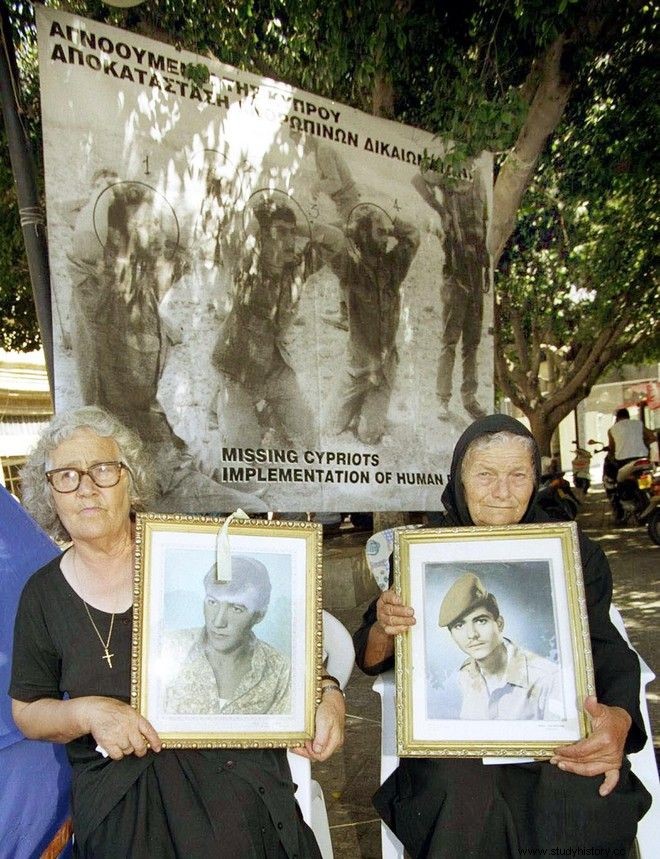
Βρήκαν οστά από τα ξαδέρφια μου
Το δράμα των οικογενειών που είχαν αγνοούμενους συγγενείς μετά τον πόλεμο, έζησε και η κ. Γιώτα Γιώρκα . Όπως περιγράφει, οι Τούρκοι σκότωσαν τελικά όσους άντρες είχαν πάρει τη μέρα που την αιχμαλώτισαν, κάτι που έμαθαν πρόσφατα. Μεταξύ εκείνων ήταν και τα νεαρά ξαδέρφια της, τα οποία ταυτοποίησαν πριν από έναν χρόνο.
"Τη μέρα που μας έπιασαν και που χώρισαν τους άντρες από τα γυναικόπαιδα, δεν ξέραμε τις θα τους έκαναν. Το άλλο πρωί τους έφεραν στο σπίτι όπου μας κρατούσαν αιχμάλωτες, τους είδαμε, μας έβαλαν να τους κάνουμε καφέ και από τότε δεν τους ξαναείδαμε. Από εκείνη τη μέρα και μετά ήταν όλοι τους αγνοούμενοι. Ήταν και τα 20χρονα ξαδέρφια μου ανάμεσά τους. Πέρυσι, τέτοια εποχή, βρήκαν τα οστά τους μετά από τόσα χρόνια και τους κάναμε την κηδεία. Τέσσερα μικρά κομματάκια από οστά βρήκαν. Τους είχαν σκοτώσει όλους. Τους βρήκαν σε έναν ομαδικό τάφο σε ένα τουρκικό χωριό, μέσα σε ένα πηγάδι".
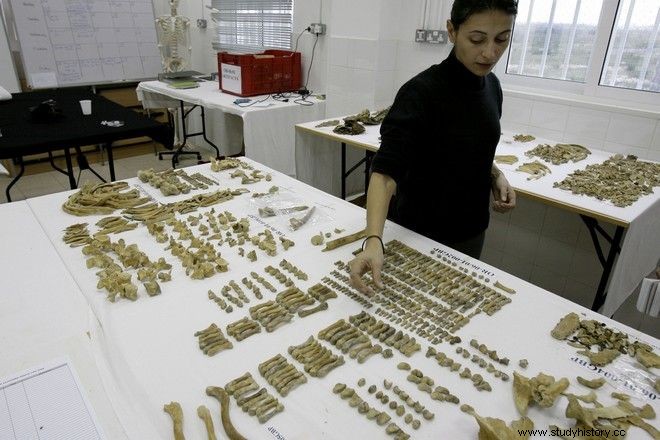
46 χρόνια μετά την τουρκική εισβολή
Σήμερα συμπληρώνονται 46 χρόνια από την τουρκική εισβολή στην Κύπρο το 1974. Γύρω στις 150.000 άνθρωποι (πάνω από το ένα τέταρτο του συνολικού πληθυσμού και το ένα τρίτο των Ελληνοκυπρίων) προσφυγοποιήθηκαν. Ένα χρόνο αργότερα, 60.000 περίπου Τουρκοκύπριοι, μετακινήθηκαν από τις ελεύθερες νότιες περιοχές, στις ελεγχόμενες από τις τουρκικές δυνάμεις βόρειες περιοχές.
Σημειώνεται, ότι τουρκικές αρχές μετέφεραν την περίοδο 1975-1995 ικανό αριθμό Τούρκων υπηκόων (εκτιμώνται σε περίπου 36.000) από τις ανατολικές επαρχίες της Τουρκίας και τους εγκατέστησαν στις βόρειες περιοχές της Κύπρου, σε σπίτια Ελληνοκυπρίων που προηγουμένως είχαν αναγκαστεί να τα εγκαταλείψουν σαν αποτέλεσμα της εισβολής. Υπολογίζεται ότι πάνω από το 1/3 του τότε τουρκοκυπριακού πληθυσμού εγκαταστάθηκε την περίοδο εκείνη στα Κατεχόμενα, με αποτέλεσμα σήμερα οι έποικοι να υπερτερούν των γηγενών Τουρκοκυπρίων.
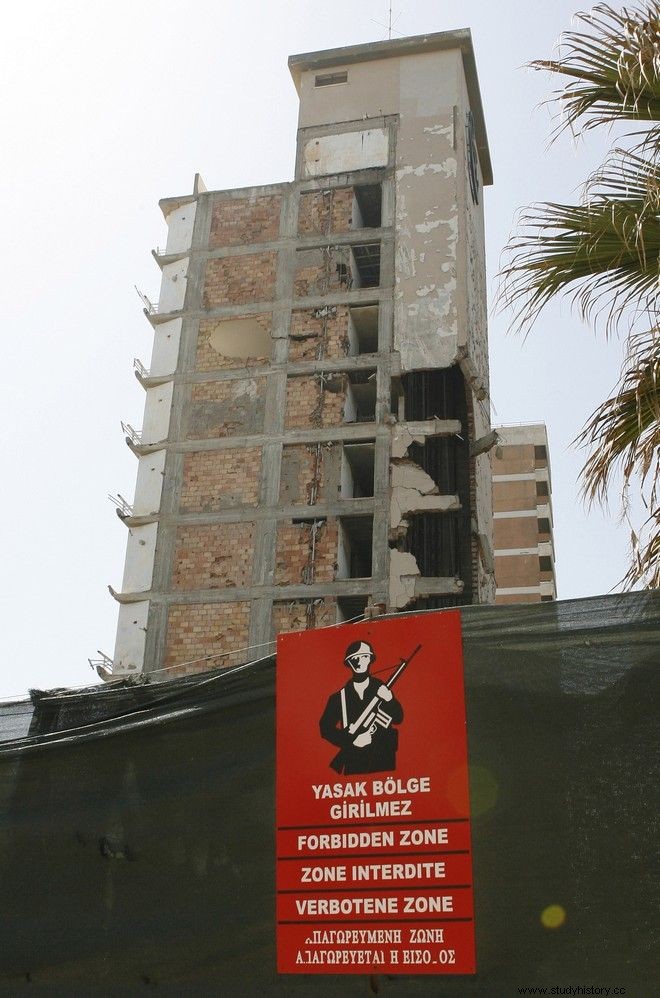
Το 1983, ανακηρύχθηκε η Τούρκικη Δημοκρατία Βόρειας Κύπρου, αναγνωρισμένη μόνο από την Τουρκία, το λεγόμενο "ψευδοκράτος". Η διεθνής κοινότητα θεωρεί τα εδάφη αυτά ως κατεχόμενα από τις τουρκικές δυνάμεις περιοχή της Δημοκρατίας της Κύπρου και η κατοχή εξακολουθεί να θεωρείται παράνομη, ωστόσο, το κυπριακό ζήτημα δεν έχει λυθεί. Οι συνεχείς συνομιλίες και οι διαπραγματεύσεις, οδηγούν τις πλείστες φορές σε αδιέξοδο, αλλά ο πόνος της προσφυγιάς παραμένει ζωντανός, όπως και οι μαύρες μνήμες του πολέμου.
Οι περισσότεροι πρόσφυγες έφτιαξαν ξανά τη ζωή τους στα ελεύθερα εδάφη, έχτισαν νέες αναμνήσεις πάνω στις προηγούμενες, κουβαλώντας όσα έζησαν. Το 2003 άνοιξαν τα πρώτα οδοφράγματα, τα οποία επέτρεψαν σε Ελληνοκύπριους και Τουρκοκύπριους να περάσουν ξανά από την άλλη πλευρά της "πράσινης γραμμής", με την αναγκαστική επίδειξη ταυτότητας από τους Ελληνοκυπρίους προς τις κατοχικές αρχές.
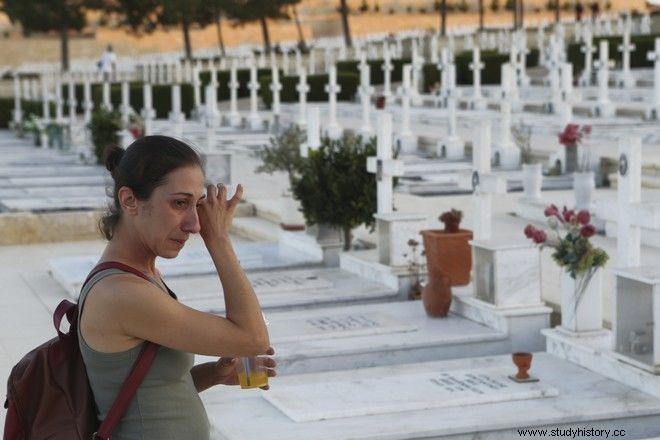
Αρκετοί κατάφεραν να μπουν στα σπίτια τους, τα οποία πλέον κατοικούνται από Τουρκοκύπριους, και σε πολλές περιπτώσεις όλα ήταν όπως τα άφησαν, προκαλώντας τους ρίγη. Άλλοι δεν κατάφεραν να δουν τα σπίτια τους, είτε επειδή τα χωριά τους έχουν μετατραπεί σε στρατιωτικές περιοχές, είτε επειδή γκρεμίστηκαν.
Οι κ. Ιωσήφ Μιχαήλ, κ. Γιώτα Γιώρκα και κ. Δέσποινα Σάββα μοιράζονται στο News 24/7 την εμπειρία τους από την επίσκεψή τους στα Κατεχόμενα, το αν βλέπουν λύση στο κυπριακό ζήτημα και τα συναισθήματα που τους προκαλεί η σημερινή μαύρη επέτειος.
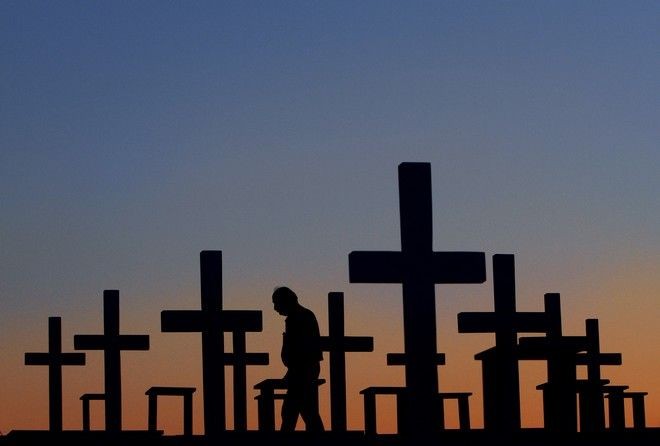
Κάθε χρόνο ακούω τις σειρήνες και ανατριχιάζω
"Το χωριό μου είναι πλέον στρατιωτικός χώρος. Είναι τέτοια η θέση του, που μπορεί να ελέγχει από Λευκωσία και Μόρφου μέχρι τον Πενταδάκτυλο. Επειδή είναι πια στρατιωτική περιοχή, δεν μας επιτρέπουν να μπούμε. Το μόνο που μας επέτρεψαν είναι μία φορά τον χρόνο να εκκλησιαζόμαστε στην εκκλησία της Αγίας Μαρίνας, που είναι η αγία του χωριού μας. Αυτό έγινε τα τελευταία χρόνια. Έχουν κατεδαφίσει σχεδόν όλα τα σπίτια. Το δικό μου υπάρχει γιατί ήταν καινούργιο, αλλά κι εκείνο κοντεύει να κατεδαφιστεί. Επίσης, υπάρχουν ακόμη δύο εκκλησίες, ενώ έχτισαν κι ένα μεγάλο τζαμί, όπου υπάρχει στρατός μέσα.
Το κυπριακό λύθηκε το 1974. Αυτή ήταν η λύση του κυπριακού, την οποία σχεδίασαν οι μεγάλες δυνάμεις Αμερικής, Ελλάδας, Τουρκίας και Αγγλίας.
Ακόμη αναμένουμε επιστροφή. Κάθε χρόνο ακούω τις σειρήνες και ανατριχιάζω. Βλέπω ντοκιμαντέρ για την εισβολή στην τηλεόραση και αλλάζω κανάλι. Είναι μνήμες που δεν μπορούν να ξεχαστούν. Και να φανταστείς, εμείς πολύ μικρό χρονικό διάστημα ζήσαμε πόλεμο. Φαντάσου στη Συρία εκείνα τα παιδιά που χτυπούν κάθε μέρα τα σπίτια τους με βόμβες και τρέχουν να σωθούν. Πολύ τραυματική εμπειρία για ένα παιδί και για τους μεγάλους βέβαια", αναφέρει ο κ. Ιωσήφ Μιχαήλ.
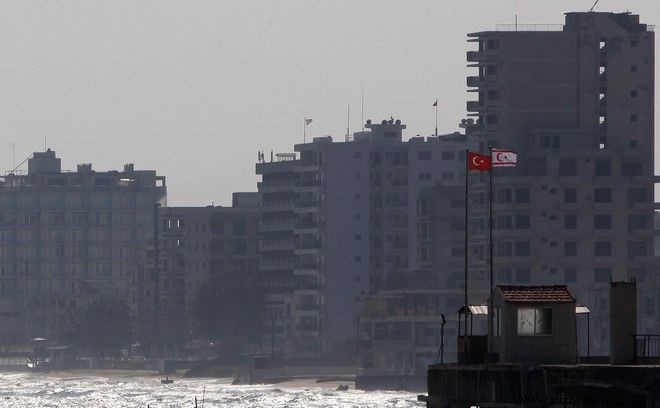
Όπου πάτησαν Τούρκοι, δεν άφησαν τίποτα
"Λίγες μέρες μετά που άνοιξαν τα σύνορα στα κατεχόμενα, πήγαμε να δούμε το σπίτι μας, αλλά το γκρέμισαν. Δεν βρήκαμε τίποτα. Χάλασαν το μισό χωριό. Πλέον δεν μπορείς να περάσεις, γιατί είναι γεμάτο στρατό το χωριό μας.
Κάποιες μέρες αφήνεσαι και ξεχνιέσαι, αλλά στην επέτειο, κάθε 20 η Ιουλίου και 14 η Αυγούστου, έρχονται όλες οι σκέψεις. Ο πόνος είναι μεγάλος. Δεν νομίζω ότι θα λυθεί το κυπριακό, θέλω να πιστεύω ότι θα γυρίσουμε πίσω, αλλά είναι πάρα πολύ δύσκολο. Όπου πάτησαν Τούρκοι, δεν άφησαν τίποτα. Κάτι που θέλουν, το παίρνουν και δεν το δίνουν ξανά πίσω", λέει η κ. Γιώτα Γιώρκα.
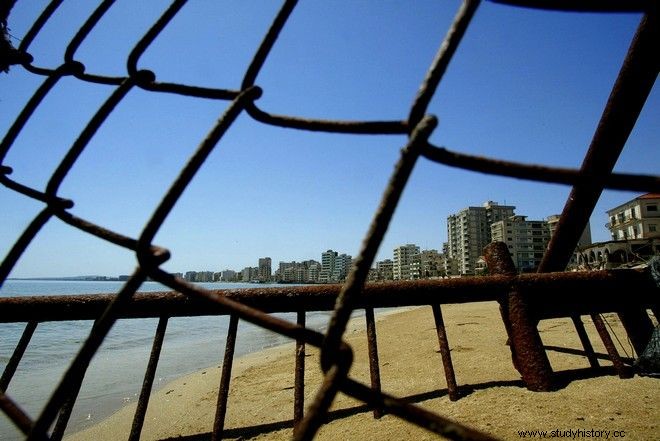
Τα θυμόμαστε συνέχεια, όχι μόνο στην επέτειο
"Δεν τα ξεχνάμε ποτέ. Τα θυμόμαστε συνέχεια, όχι μόνο στην επέτειο. Έφταιγαν και οι δικοί μας, όμως. Έκαναν και εκείνοι πολλά.
Δεν πιστεύω ότι θα λυθεί το κυπριακό. Πήγαμε και είδαμε το σπίτι μας. Εκεί μένει τώρα μια Τουρκάλα πάρα πολυ καλή, μας φέρθηκε πολύ ωραία. Ξέρω άλλους που πήγαιναν να δουν το σπίτι τους και δεν τους άφηναν, δεν τους άνοιγαν καν. Όποτε πάμε, δεν μας αφήνει να φύγουμε. Μας έχει καλέσει για φαγητό, για καφέ. Την έχουμε καλέσει κι εμείς στη Λεμεσό, έχει έρθει αρκετές φορές. Αυτοί δεν φταίνε. Όπως δεν φταίμε εμείς, δεν φταίνε κι αυτοί", αναφέρει η κ. Δέσποινα Σάββα.
Η επέτειος των Τούρκων
Η Τουρκία υποστηρίζει ακόμη και τώρα πως η τουρκική εισβολή αποτελούσε ειρηνευτική επέμβαση νομιμοποιημένη από το άρθρο 4 της Συνθήκης Εγγυήσεων (συμφωνίες Ζυρίχης-Λονδίνου) και δεν αναγνωρίζει μέχρι και σήμερα τα εγκλήματα που διέπραξε.
Αξίζει να σημειωθεί, μάλιστα, πως κάθε χρόνο, την μέρα που η Κύπρος θρηνεί στην επέτειο της 20ης Ιουλίου, εκείνοι γιορτάζουν την επιχείρηση του 1974 και τη συνεχιζόμενη (παράνομη) κατοχή των κυπριακών εδαφών, με στρατιωτικές παρελάσεις, πτώσει αλεξιπτωτιστών και εκδηλώσεις.
